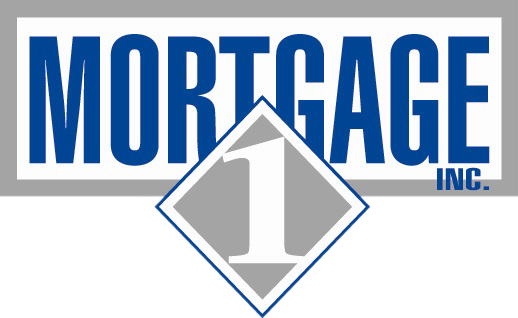
Mortgage Calculator for Michigan Homeowners
April 11, 2023
Team DeWolf Prioritizes Buyer’s Needs
May 3, 2023If you’re looking to buy a home, one of the first questions you may have is, “What loan do I qualify for?” There are various home loans available, each with its own set of qualities and eligibility restrictions. The good news is that regardless of financial status, homebuyers have access to a wide range of options.
In this article, we will walk you through common home loans for homebuyers of all backgrounds. By understanding the different types of mortgage loans and their eligibility requirements, you can make an informed decision and find the right loan to finance your home.
| Get Pre-Approved Today Mortgage 1 can help you find a loan that fits your needs and your financial situation. Call 1-866-532-0550 or get preapproved today with our easy-to-use digital preapproval app. It takes as little as 15 minutes. |
Conventional Loans
Conventional loans, which are not backed by government organizations like FHA or VA loans, may be among the most often used home loan options. To be eligible for a conventional loan, you’ll need a good credit score (generally at least 620) and a debt-to-income ratio (DTI) of 45% or less.
The minimum down payment for conventional loans may be as low as 3%, though this varies by the lender or by each borrower’s circumstances. Private mortgage insurance (PMI), which protects the lender in the event that the borrower fails on the loan, is required for conventional loans with less than 20% down. Your PMI will be less expensive the larger your down payment is. Similarly, the better your credit score, the more likely you are to get the best mortgage rates and PMI premiums.
FHA Loans
An FHA loan is a government-backed mortgage insured by the Federal Housing Administration (FHA). FHA loans frequently have more relaxed restrictions than conventional loans, often making them easier to qualify for. To meet FHA loan qualifications, you must have a debt-to-income ratio of less than 43% and a credit score of at least 500, both of which will affect the minimum down payment needed at closing. With a credit score of 580 or more, the required down payment is 3.5%; for scores between 500 and 579, it is 10%.
Borrowers are also required to pay FHA mortgage insurance. This shields the lenders from losses and enables them to set more relaxed requirements. To determine whether a borrower has a stable and consistent income, lenders will also consider their income and work status during the last two years.
VA Loans
A VA loan is guaranteed by the Department of Veterans Affairs. In order to be eligible for a VA loan, you’ll need to be a veteran, active-duty service member, or eligible surviving spouse. Unlike other loan options, VA loans do not require a minimum down payment or require the borrower to pay PMI.
Although there is no credit score minimum for VA loans, many mortgage lenders will set their own credit requirements. Talk to a mortgage lender to discuss your financial situation and what credit qualifications they require for VA loans.
The maximum debt-to-income ratio for VA loans is 41%. According to VA guidelines, borrowers who have a higher DTI may still be eligible for a VA loan under the following conditions:
- The DTI ratio is more than the permissible limit due to tax-free income.
- The residual income surpasses the acceptable limit by around 20%.
USDA Loans
A USDA home loan is guaranteed by the United States Department of Agriculture (USDA) for low-to-moderate-income borrowers. To qualify for a USDA loan, you’ll need to meet income eligibility requirements and purchase a home in a rural area defined by the USDA.
There is no credit score minimum for USDA loans, however, many lenders typically require a credit score of at least 640 to qualify.
Mortgage insurance is not required for USDA loans; instead, guarantee fees, comparable to FHA mortgage insurance, are required. You’ll pay an upfront fee of 1% of your loan amount and an annual fee (collected until 80% loan to value (LTV) is achieved).
Try to keep your debt-to-income ratio (DTI) under 41%. Your entire household’s income, including that of non-borrowers, is also taken into account for USDA loans. The total income for the household can not exceed more than 115% of the median household income in the area to qualify for a USDA loan. This is not factored into your DTI.
We Can Help You Find a Loan That Fits Your Needs
To determine what mortgage loan you qualify for, you’ll need to consider your credit score, income, debt-to-income ratio, and down payment. At Mortgage 1, we can help you determine the best loan option for you and your financial situation. Get started today with the Pro SNAP digital mortgage, or call us at 1-866-532-0550





